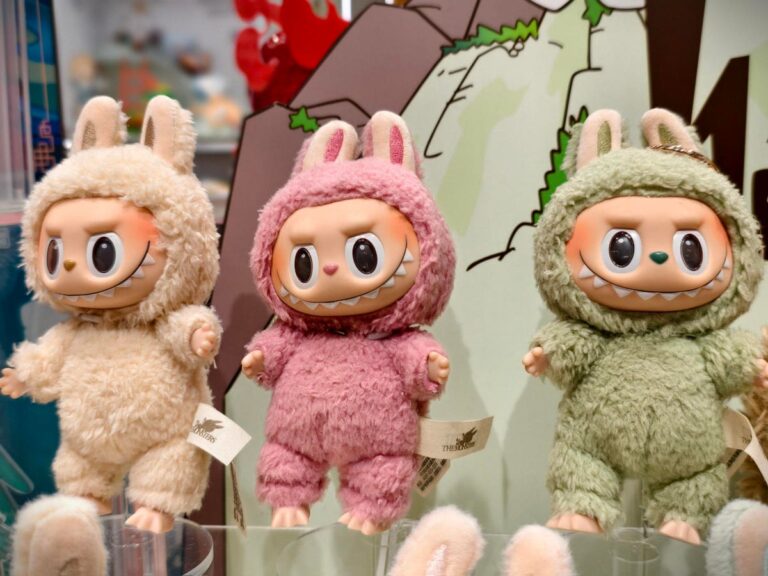Pop Mart’s Labubu.
VCG via Getty Images
Chances are that you’ve come across or heard of Labubu. The chaotic, mischievous and possibly creepy doll has become an unlikely cultural status symbol for Gen-Z. Labubu is a fictional character created by Hong Kong artist Kasing Lung for his picture book series, The Monsters. In 2019, Chinese retail and entertainment company Pop Mart formally partnered with Kasing Lung to license Labubu, bringing it into the blind-box product line, a popular format where the contents of the package are a mystery until it is opened.
The turning point for Labubu’s global appeal can be traced back to when Lisa Manobal from Blackpink was photographed with a Labubu keychain on her bag in 2024. The sighting sparked a surge of interest in Southeast Asia before trending globally. Soon enough, Rihanna, Kim Kardashian and even David Beckham were seen rocking Labubus. The demand for the toys became so great that Pop Mart had to temporarily pause in-store sales in the U.K. for safety reasons. Both intentionally and inadvertently, Pop Mart has tapped into the scarcity bias: a psychological tendency for people to place a higher value on things that are limited in availability. Pop Mart engineered scarcity through blind boxes and limited edition runs. However, celebrity sightings and store sellouts turned Labubu into a cultural status symbol. Either you had one or you didn’t.
The popularity gave rise to a booming secondary market, with the most expensive Labubu sold on eBay fetching $10,585. Perhaps another indicator of the global status is that Labubus make up 90% of the counterfeit toys seized at the U.K. borders. Nonetheless, Pop Mart has seen profits soar by 400% in the first half of the year. Shares are up almost 204.4% since the start of 2025. Most interestingly, North America and South America are Pop Mart’s second-largest market after Asia-Pacific, with revenue jumping more than tenfold to 2.3 billion yuan. Only time will tell if Pop Mart and Labubu can sustain popularity for the next year or decade. However, the popularity of Labubu and Pop Mart signals a much bigger shift of soft power that is rising in the East and settling in the West.
China has now overtaken the U.K. to become the world’s second most influential soft power nation after the U.S. The 2008 Beijing Olympics was a pivotal moment in China’s intentional pursuit of soft power and cultural influence. Labubu presents the next frontier of cultural influence. At a time when BYD has overtaken Tesla as the world’s largest EV maker by sales. DeepSeek is directly competing with OpenAI on math and reasoning benchmarks. And Luckin Coffee has overtaken Starbucks as China’s largest coffee chain while entering the U.S. market. A recent poll by Morning Consult showed that for the first time, China’s global standing surpassed that of the United States, including among American allies. Moreover, young Americans are less hostile to China than previous generations.
In the past, Western brands would look East for new markets and growth opportunities. Today, the script has flipped. Eastern brands are forcing Western companies to defend their home markets. The flow of cultural influence and capital is reversing. The next chapter might not be written in English.


